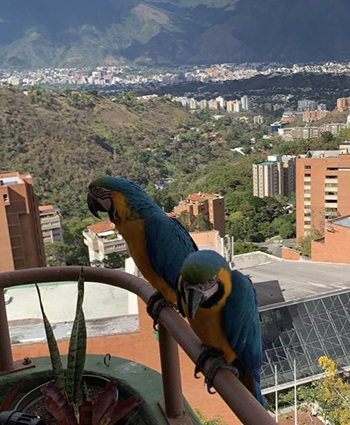A local approach to helping Canadians abroad

If you are ever in trouble while travelling internationally, chances are you will need help from a staff member at one of our Canadian offices abroad. Many of the employees at our missions are locally engaged staff (LES), hired to help deliver programs and services on behalf of the Government of Canada. These staff members are invaluable, thanks to their knowledge of local languages, culture, laws, and businesses, as well as their networks.
Sara Pilote is an LES who has been working in the Consular Agency of Canada in Cabo San Lucas, Mexico, for almost 4 years. Most of the consular work she handles includes renewing passports, issuing emergency travel documents and responding to requests for consular assistance from Canadians in Mexico. The more difficult consular issues can involve crime and mental health issues experienced by Canadians. She explains that most of the job is connecting Canadians to the right resources, showing them the processes they need to follow and telling them who to contact locally or in Canada for assistance.
Maria Antonieta Quintero is an LES who has been working in Canada’s embassy in Caracas, Venezuela, for over 15 years. Lately, the most common type of cases have involved the repatriation of Canadians. The embassy suspended its operations in June 2019, with Maria Antonieta remaining as the local consular officer.

Macaws on a balcony in Caracas.
“The most difficult cases to deal with are the arrest and detention ones, due to the challenging work environment with the political, economic, social, security, telecommunications and current health crisis,” says Maria Antonieta. “The already complex situation has been worsened by the COVID-19 pandemic.”
One of the most memorable cases Maria Antonieta remembers working on involved a Canadian who had to spend time in jail in Venezuela before he was transferred to Canada. “A few months after the transfer, I received a letter from that person,” she said. “He was grateful for every visit and every word he got from me during his time in prison and he said that these definitely changed his life.”
Louise Mulvihill is an LES at the Consulate General of Canada in New York who has worked as a consular officer for over 30 years. She says problem solving and being able to think outside the box are important qualities for her work. She remembers helping a family stuck on a road in a winter storm by using highway cameras to locate them and check on their status. Louise also remembers a pregnant woman her team had helped during 9/11. The woman came back months later with her baby to thank Louise and her colleagues.
Some sage advice from Canada’s mission staff abroad include safe travel planning tips. Sara advises Canadians to buy travel insurance “even if you’re young and you think nothing bad will happen to you, and it costs more than you planned to spend.” At the end of the day, the cost of insurance is much lower than a pricey hospital bill. She also recommends that you complete the Registration of Canadians Abroad so that in the event of an emergency while overseas, you will receive important information and the Government of Canada will know where you are and how to reach you.
Maria Antonieta advises travelers to research the status of their destination before they leave home using Travel Advice and Advisories. For example, the Government of Canada currently advises against going to Venezuela because conditions in that country are unstable and the embassy has limited resources.
Consular officers work hard on a wide variety of cases all over the world and gain great satisfaction from helping Canadians. And though a lot of their work may be routine, Sara says it is important for mission staff to always be available for Canadians in need. “Part of consular work is being present so that people, when they’re in a difficult situation, know they can rely on someone and that someone is there to help them,” she says. “For them to be able to speak in their language is also very helpful. They feel that they’re not alone.”
Visit travel.gc.ca for information on travelling in Canada or abroad.
- Date modified: